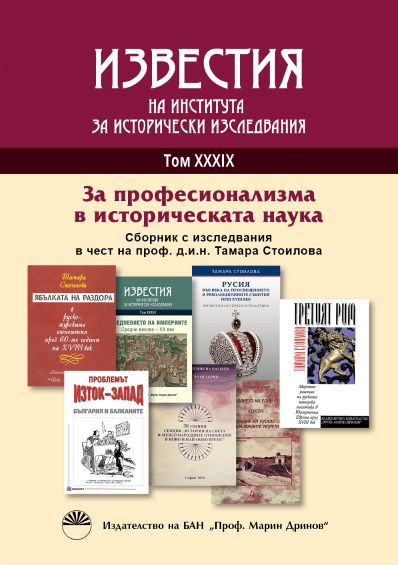Съветско-югославските отношения през призмата на съветско-китайския конфликт (1956–1964)
Soviet-Yugoslav Relations through the Prism of the Sino-Soviet Conflict (1956–1964)
Author(s): Nadezhda YankovskaSubject(s): History, Political history, Post-War period (1950 - 1989), History of Communism
Published by: Институт за исторически изследвания - Българска академия на науките
Keywords: Soviet-Yugoslav relations; Sino-Soviet Conflict; Communist Party of the Soviet Union; League of Communists of Yugoslavia; Chinese Communist Party; Nikita Khrushchev; Josip Broz Tito; Mao Zedong
Summary/Abstract: The article offers a different view on the dynamics of Soviet-Yugoslav relations in the period 1956–1964, focusing on their sensitivity to the progressively growing Sino-Soviet contradictions. The crisis in Eastern Europe and the related problems in Soviet-Yugoslav relations were skillfully used by the Chinese Communist Party in order to increase its authority in the communist movement. This, in turn, allowed it to behave more defiantly in the following period, leading to the growth of simmering differences between the two largest communist parties. In the spring of 1958, when Beijing and Moscow‘s relations with Belgrade sharply soured, Soviet leader Nikita Khrushchev used the situation to reduce tensions between CPSU and CCP by taking a number of anti-Yugoslav measures. However, he avoided extremes toward Yugoslavia, which further fueled China‘s dissatisfaction with Soviet policy. The subsequent escalation of the Sino-Soviet conflict in the early 1960s pushed the USSR and Yugoslavia towards a mutually beneficial rapprochement on an anti-Chinese basis.
Journal: Известия на Института за исторически изследвания
- Issue Year: 39/2025
- Issue No: 1
- Page Range: 510-527
- Page Count: 18
- Language: Bulgarian
- Content File-PDF

